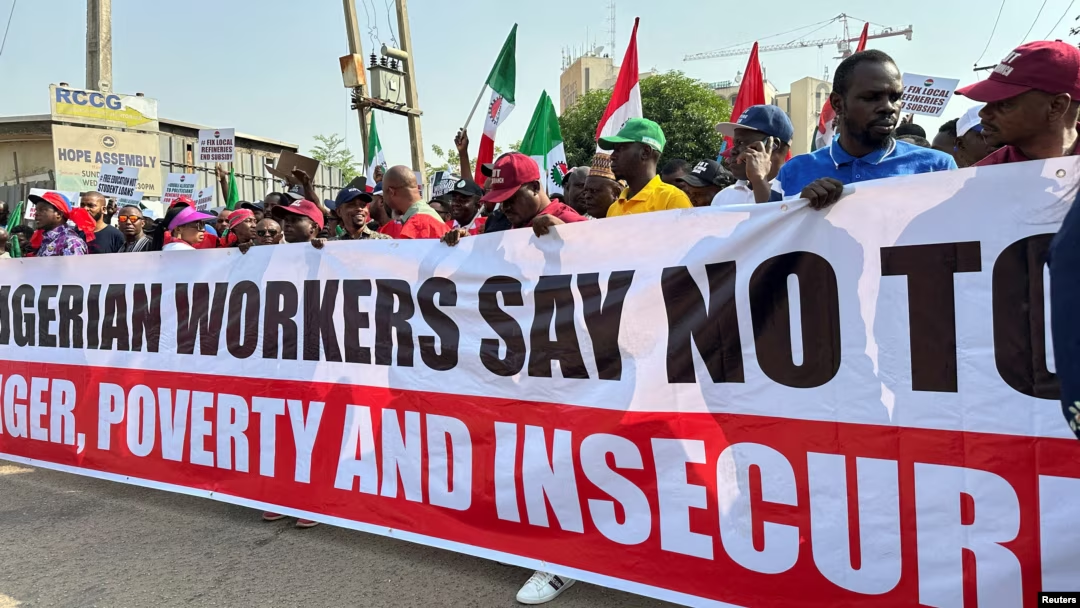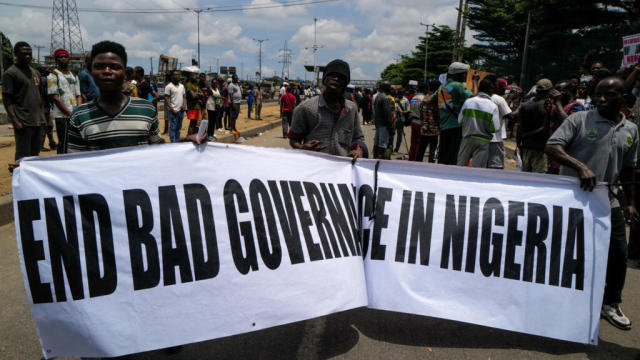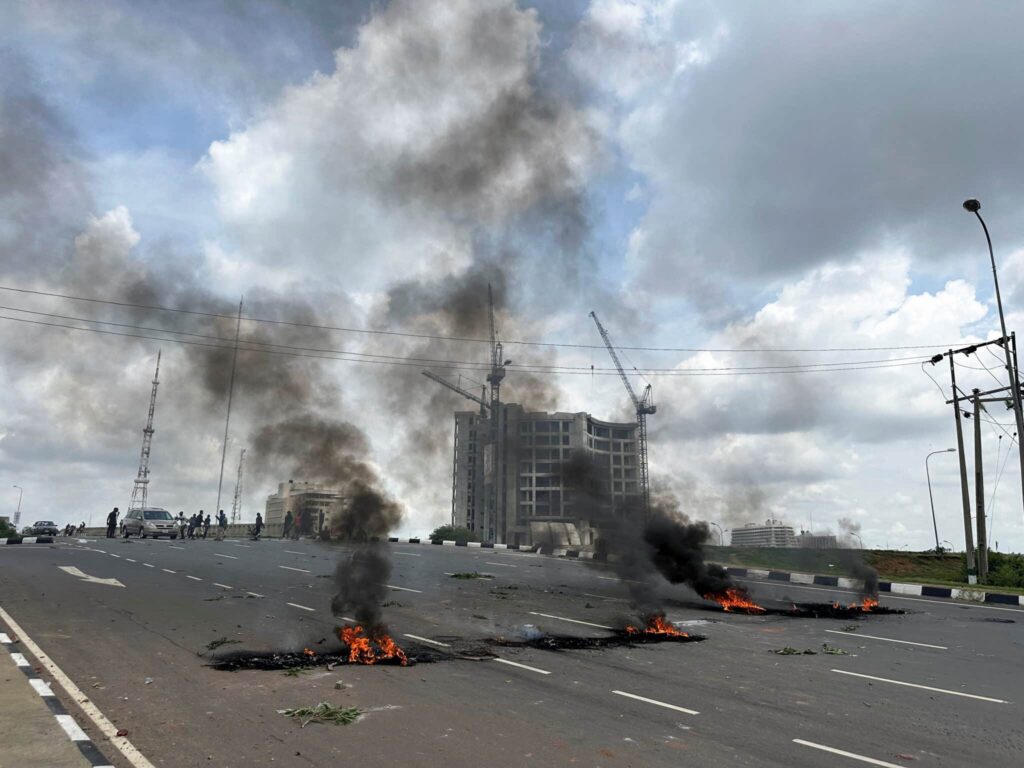Protests in Nigeria against the soaring cost of living have significantly diminished after a deadly police crackdown. The demonstrations, which initially drew hundreds of thousands to the streets of major cities such as Abuja, Lagos, and others, saw a drastic reduction in numbers on Monday, with only a few hundred protesters continuing the fight.

The protests, which began last week, were triggered by widespread economic hardship and high inflation, leading to public outcry and a movement dubbed “#10DaysOfRage.” They were set to continue until August 10. However, the heavy-handed response by security forces has significantly dampened the movement.
Amnesty International reported that at least 13 people have been killed in clashes with police since the protests started. Police have acknowledged seven deaths, attributing some fatalities to accidents and an explosive device. The deaths have added to the already tense atmosphere, contributing to the dwindling protest numbers.
A strict police presence and a **call for a protest pause** by President Bola Tinubu seem to have quelled the demonstrations. This call for calm came weeks after data showed annual inflation hitting a 28-year high of 34.19% in June, exacerbating public dissatisfaction.

In the commercial hub of Lagos, where the demonstrations have been mostly peaceful, around 100 people gathered at a protest venue, singing and chanting “we are hungry.” Meanwhile, in Abuja, the main stadium saw no signs of protest, despite being a significant gathering point since Thursday.
In the northern region of the country, around 200 protesters in Maiduguri, the capital of Borno state, were dispersed by armed police. In Katsina, security forces fired tear gas at demonstrators who chanted, “hunger and insecurity are killing us.”
The protests have varied across Nigeria, with parts of the north experiencing some of the most intense and fierce resistance, particularly in the central state of Plateau.

President Tinubu has urged citizens to end the violence, emphasizing his openness to dialogue and peaceful resolution.
Since taking office in May 2023, President Tinubu has implemented several economic reforms aimed at addressing Nigeria’s financial woes. These include the removal of petrol and electricity subsidies and a currency devaluation to combat years of economic mismanagement.
Despite these efforts, the public remains frustrated by the immediate impact of these policies, which have increased living costs and exacerbated economic hardship for many Nigerians.
As the protests fizzle out, Nigeria faces ongoing challenges in balancing necessary economic reforms with public welfare. The government’s ability to navigate this delicate situation will be crucial in ensuring stability and addressing the root causes of discontent.
Reuters



